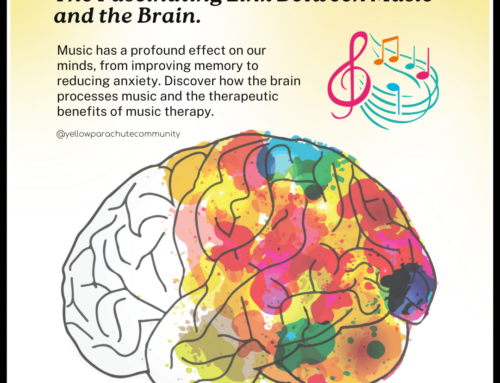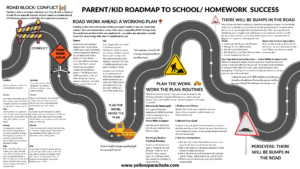There aren’t enough capital letters on the keyboard to express my concern for the way I see anxiety shredding the confidence and undermining the beautiful, unique, God-given gifts of our youth. I could weep. And I do. But that won’t help them. So I write you with the hope that we can do this together.
As one who has struggled with the anxiety-making machine that is perfectionism, I know the dance well. One step forward, two steps back. Round and around we go—swing your partner and let ‘er go! Where she’ll stop, we don’t know! Or, in other words: Do I look OK? Did I say the wrong thing? What if she took it that way? Why would he say that to me? What if I fail? What if I don’t fail but people THINK I fail?
I have been fortunate to have mentors, role models, incredible friends and a family support system, a good measure of grit, and mild-enough challenges to tango through my anxiety without major intervention. But I also know that, had I known then what I know now, I would have sought professional counseling as a teen—to help me feel understood and to give me coping strategies that I could carry with me into adulthood.
My thoughts and fears tend to cluster around others’ opinions of me (which will come as no surprise to those who know me) but motherhood brought on its own unique set of twists, turns, and do-si-dos. Another way I’ve described my personal experience of anxiety was: when you have little kids, sometimes they try to run straight from the bath to the backyard, dodging the fluffy towel, the underwear and socks. As the adult, it’s your job to catch them and bundle them up. With anxiety, your thoughts are likewise out the door and down the street with bare buns in the freezing cold before you have a chance to say, “Wait!” It might feel good to give them free rein at first, but it soon becomes uncomfortable, stressful, even harmful.
The distinction between feeling anxious and having anxiety is an important one to make. We all have anxious feelings about things that matter to it, be it an athletic performance, test-taking, socializing, or the health and well-being of our loved ones and ourselves. And normalizing these feelings for ourselves and our kids is helpful. “It’s understandable that you’re nervous before your piano recital. You want to do well. You’ve practiced the piece, you know where to sit, your teacher will help you with page turns. You enjoy playing right? Picture yourself at home playing our piano. Have as much fun as you can.”
Having anxiety means those thoughts don’t ease up. They hang around and tap you on the shoulder when you’re least expecting it. Dance with me? And before you can say “No,” your thoughts are spinning you all over the room. If you feel like you spend most of your day feeling this way, if you never have a moment to recover and rest, then consider looking for a mental health counselor who can help you carry this big, heavy burden.
In the meantime, how can we cope with this unpleasant-but-oh-so-inevitable part of life?
Why Trying to Calm Down Does Not Work
When you try to tell yourself to calm down you can fuel anxiety because your brain and body are fighting against one another. Your brain is trying to avoid thinking about what your body is doing, but the mind/body connection can be so powerful that the body rules the brain rather than the brain ruling the body. And so the brain only exhausts itself in trying to take back control. Mel Robbins describes the “just calm down” approach as akin to trying to stop a freight train by throwing a boulder in front of it. You’ve stopped the train, sure, but in doing so have created more chaos and harm. Research has even shown that when we try to suppress our thoughts, they end up becoming even more powerful and distressing. Here are some ideas about what to do instead.
Stop thinking, get moving!
Do you or your kiddo ever feel like puking when other people are counting on and watching you? That’s your anxiety lodged in your body, so using your body is the best way to work it out. I tell my kids; ever feel nervous before a hockey game, skate fast as you can until feel like your butt is going to fall off. Big presentation at work? Try hitting the gym hard in the morning. About to start a driving lesson with your teen? Maybe take a brisk walk around the neighborhood together first.
Set aside worry time
If you’re too wound up to try a mindfulness meditation and exercise alone won’t cut it, set a timer and turn your full attention to your worries. Write them down, say them aloud, think of every possible idea that might be creating tension in your body. Then? Challenge your thoughts. Think you never succeed? What about that promotion two years ago? Worried about that sinister-looking mole? You already made a follow-up with your doctor. It’s okay if you can’t counter every worry, the point is to give them less power by facing them. Write down things you know are true about yourself. I am a learner. I am a soccer player. I have prepared for this exam. I have prepared for this presentation. https://adaa.org/living-with-anxiety/children/test-anxiety
Not anxious. Excited!
Heart thumping, sweaty palms, a little short of breath. Anxiety, right? It doesn’t have to be. Excitement feels very similar, so instead of asking your brain to ignore the way your body feels (which makes you feel worse), ask it to provide a positive explanation for the way your body feels. Tell yourself that you aren’t nervous about your first day at the new job, you’re eagerly looking forward to it! This new narrative gives you agency; you’re excited to act instead of afraid of being acted upon. It’s amazing how quickly your brain switches into a positive gear when you give it the chance.
Remember 5,4,3,2,1, from last week? Try the countdown to regain control of your thoughts, then reframe them. (The 5 Second Rule)
The countdown provides the cognitive switch you need to allow your brain to takeover instead of letting your body run away with it, like kiddos after a bath. 5,4,3,2,1, I’m excited about this new job. 5,4,3,2,1 I’m excited to try my new strategies on the ACT this morning, 5,4,3,2,1 I’m excited to deliver the speech I’ve worked so hard on. The feelings won’t go away, but instead you work with them to channel them into positive energy and action. Oh what a meaningful switch!
Lastly, dear readers, if you’ve made it this far in my note to you—and I sure hope you have because these techniques work—please, please, please, if you or someone you know struggles with anxiety, pass this information along. Connect with your Learning Coach for tips on managing anxiety, if you have one, or reach out and set up an appointment if you don’t. If the thought-spiral is more than you can handle alone, seek professional help. And fight the good fight to show up as you are, in your unique and wonderful combination of qualities, and shine./span>
-Cara







